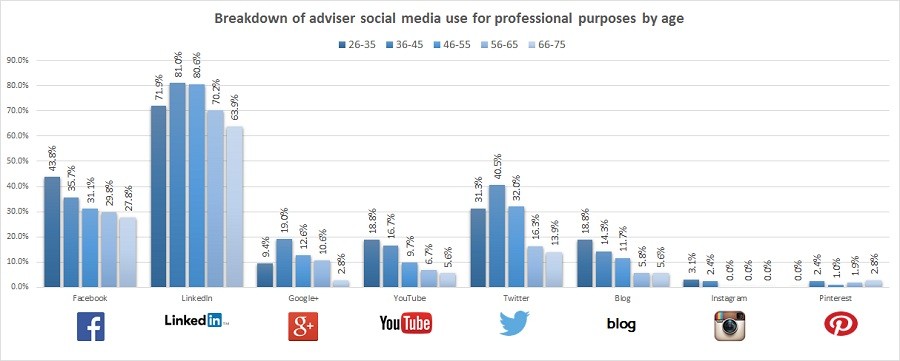There are too many financial advisers
Post on: 16 Март, 2015 No Comment

Frequently, I see news articles that talk about the upcoming doctor shortage. With all the baby boomers retiring, apparently many more primary care and other types of doctors are going to be needed. Given the difference in pay between specialists and primary care physicians, apparently far too many medical students choose to specialize. The problem can be particularly acute in rural areas. Yet I never see a news article that says there are too few financial advisers. This ought to surprise you, since the need for financial advisers has never been higher. Pensions are going the way of the dodo and the majority of American workers is now responsible for their own retirement. People are wealthier on average than in past generations. Financial markets and the tools available to invest in them are getting more and more complex each year. The population also continues to grow. Yet, apparently, we still have far too many financial advisers. Lets look at how we know this:
Exhibit 1: Have you ever seen a financial adviser with a closed practice? Neither have I. Yet doctors close their practice all the time, especially to lower-paying clients like those with medicare or medicaid. How many clients could a financial adviser handle? Well, lets say he needs to spend a half hour with them once a quarter. He may need to spend 5 hours a week doing research that benefits all the clients. Lets say he works for 40 hours a week for 48 weeks a year. In any given quarter, he has 840 appointments to meet with clients. So a full practice would be 840 clients. Most financial advisers would be very happy to have 3% of that. Even if he spent 2 hours per client per quarter, he could still handle 205 clients. Ask your adviser how many clients he has that he meets with at least once a quarter. The answer may surprise you.
Exhibit 2: The barriers to entry to become a financial adviser are way too low. The actual requirements can be completed with minimal education, sometimes as little as week or two of studying, and less than a few hundred dollars. In fact, most financial firms prefer to hire someone with lots of sales experience and then train them themselves. Sure, they get enough education to pass the minimal tests, but most of the training is, again, in sales.
Exhibit 3: How much should a financial adviser make? Given that the educational requirements are so low, I think there would be plenty of people lining up at the door to do it for $60,000 a year. How many clients does an adviser need to have to generate $60,000 a year in fees? Lets say his average client has $500,000 and they pay him 1% of their assets each year. Just for fun, lets assume he doesnt get any loads or commissions. 1% of $500,000 is $5000. So to make $60,000, he needs just 12 clients. 12 clients! He could spend an entire week per quarter with a client if he only had 12! To be fair, there would probably be some overhead, so add on a few more clients. But still, thats ridiculous. And that assumes no commissions/loads. Since 2 hours per quarter x 12 clients is only 24 hours, how does he spend the rest of his time? One word: Marketing. Since each additional client is so profitable, there is a huge incentive to get more. But given the income possible for just a few clients, the job attracts competitors like pheromones. Lets say an adviser was quite successful, and actually built his practice to that 205 client level. How much would that be worth at 1% a year for an average portfolio of $500,000? $1,025,000 annual salary. Sound pretty good to you? Me too. Especially for a bachelors degree and a couple of weeks of on-the-job training. And again, this is assuming no loads or commissions.

Exhibit 4: What percentage of your time do you spend marketing your practice? Perhaps your first couple of years of practice youll spend 2 or 3% a year. After that? For most doctors the answer is nothing. Medical care is a product that is bought, not sold. Not so for financial advisers. MOST of their time is spent marketing, even after years in the industry. Even the good ones have to spend lots of time marketing since their practices arent full because they have to compete against all the scumbags.
Exhibit 5: How much SHOULD a financial adviser charge? Well, if they spend 2 hours a quarter on your account, thats 8 hours a year. Even at $250 an hour (more than many physicians make after 10-15 years of training) thats only $2000 a year. On a $500,000 portfolio, thats 0.4% a year. You dont pay your lawn guy, your doctor, or your lawyer as a percentage of assets. It doesnt take any more time or effort to manage a $1 Million portfolio vs a $100,000 portfolio. Why would it cost 10 times as much? If an advisor had just 100 clients, and made $2000 a year off each of them, he would make as much as the average doctor. Seems like a plenty fair wage to me. If youre paying more than $2000 a year for financial advice, you might want to think about negotiating that down. Many of your colleagues are unknowingly paying $10-20,000 a year. (1% of a $1-2 Million portfolio.) Whose 401K are you funding?
Conclusion: There are way too many financial advisers. Unfortunately, the vast majority of them are poorly trained, have little experience (at least in financial subjects other than sales), and spend most of their time seeking out new clients rather than servicing existing ones. Id like to see the barriers to entry and educational requirements raised. I think that would decrease the number of used car salesmen in the business.














